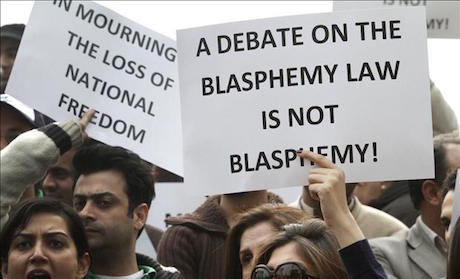The recently enacted Harmful Digital Communications Act 2015 allows for an individual to begin proceedings if it is alleged that a digital communication caused an individual to suffer serious emotional stress by denigrating that individual’s religion.
The Humanist Society of New Zealand have taken issue with the Act.
They agree there is a need to address the problem of cyberbullying.
However, they contend that an unintended consequence the Act has been the creation of an additional de facto blasphemy law.
Mark Honeychurch, The President of the New Zealand Humanist Society, says it “not only flies in the face of human rights, but the introduction of yet another law that gives special privileges to religions is unfair, unpopular and unrepresentative of our society, where over 40% of New Zealanders identify as not religious, making this our country’s largest single belief group.”
“Because ‘serious emotional stress’ is so subjective, it is almost impossible for anyone to asses before they publish, whether someone, somewhere will take offence,” said Jeff Hunt writing in the Humanist Newsletter.
After the attack on the Charlie Hebdo office in January the Humanist Society of New Zealand, and the New Zealand Association of Rationalists and Humanists called for the scrapping of New Zealand’s blasphemy law.
They said the law protected religions, rather than religious people from discrimination.
Blasphemy libel was listed under the Crimes Act 1961 as being punishable by a year in prison, but it’s only been used in one prosecution, in 1922, and that failed.
The humanist groups wanted the law repealed.
They said it would emphasise the importance placed on free thought and speech, and would allow New Zealand to criticise blasphemy laws in other countries without sounding hypocritical.
Source
Additional reading- Blasphemy in NZ
- NZ's anti-troll law: gift to trolls, bad for free speech
- Editorial: Harmful Digital Communications Bill goes too far
- Media freedom fears under new cyberbullying law
News category: New Zealand.




